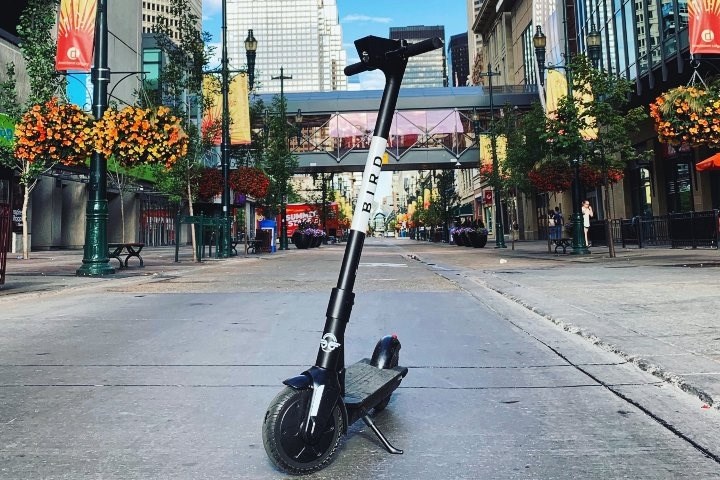City leaders are mulling allowing electric scooters on Longmont’s public sidewalks, a move that could mean altering the local traffic code to let the devices be regulated like conventional and electric bicycles.
Private scooter companies have contacted the city to establish operations in Longmont and city staff members say they want direction from the city council on how to handle the demand. “... it is a community-wide issue and scooters would need to be allowed to operate and be parked on public sidewalks to be a viable operation,” a city staff report states.
Council members are expected to debate electric scooter use on public streets at the council’s regular meeting at 7 p.m. Tuesday.
Electric scooters are currently allowed on public streets but are not allowed on limited access highways, bike or pedestrian paths or allowed to operate at a speed of more than 12.5 miles-per-hour, the staff report states. The city’s Model Traffic Code, or MTC, also currently prevents electric scooters from being used on public sidewalks.
City staff produced a partial list of pros and cons of allowing electric scooters in the city. On the positive side:
Shared electric scooters represent a low cost mobility option for those that cannot afford an automobile. Generally, the cost to unlock a Bird scooter is $1 and ranges from 15 cents per minute up to 39 cents per minute depending on the market.- Electric scooters help people access transit and provide a first/last mile transportation option. The availability of electric scooters increases the amount of distance a commuter would be willing to go to access transit without driving to the transit stop.
- Electric scooters produce no tailpipe emissions.
- Electric scooter share companies have the ability to to restrict locations where scooters may operate.
On the con side:
- For those that operate scooters, there is an increased risk of injury. In Salt Lake City, subsequent to the launch of scooter rentals in 2018, injuries resulting in emergency room visits more than doubled from the previous year and included musculoskeletal injuries, head injuries and superficial soft tissue injuries.
- Increased electric scooter usage leads to an increase in pedestrian/scooter conflicts. The city’s Public Safety staff had concerns about people on e-scooters hitting others — walking, bicycling or driving, and the personal liability responsibility in those crashes.
- The environmental benefits of electric scooters are eroded by a number of factors. The scooter merely replaces a large number of trips that would have otherwise been made using a non-or-low polluting mode.
- Short life cycle of scooters.
- People using shared electric scooters have been known to block ADA access ramps and sidewalks by inappropriately parking scooters on sidewalks in many cities where they’ve been deployed.



